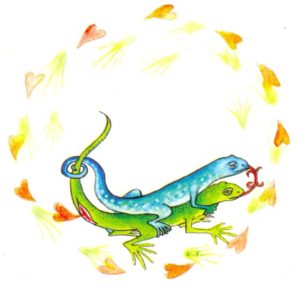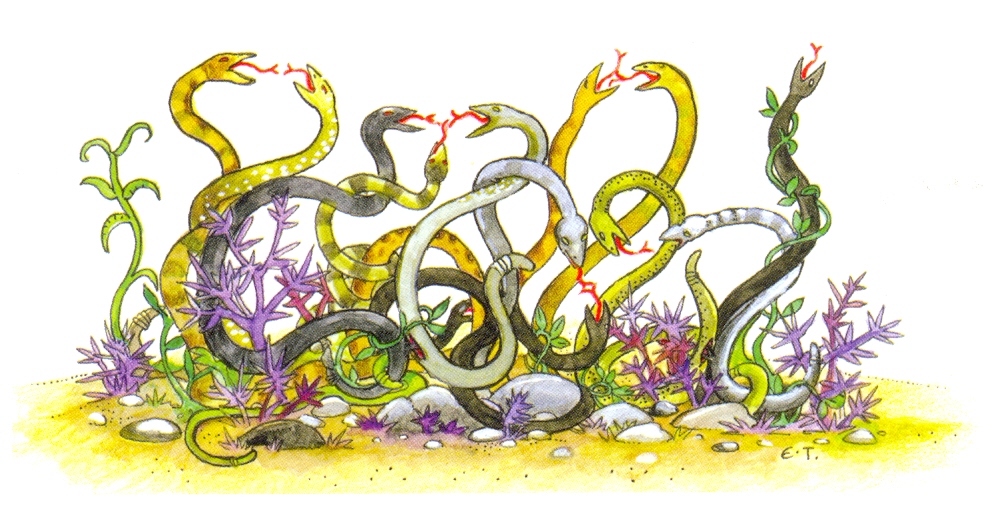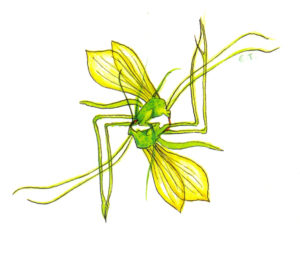by Teos Romvos
Within me storm, fog and sorrow. From my fingers flow rows of words, discourses spring out, entwined with passion and rage, sentences grow imbued with the destruction of landscapes, threats take aim from all sides, trials, cries and howls for respect towards the planet which hosts us, struggles for this group of Aegean islands to keep existing without being obliterated by the myriad enemies which have besieged them relentlessly over the centuries.
Come on, my friends, I’m inviting you along on a great journey in the Aegean. From the agitated sea and its foaming waves to the depths, where ancient shipwrecks rest, with fishes of undeterminate age, pearls and black coral.
Come to the surface and see the flying fish hunting, look at how they flutter, skimming on the undulations and wrinkles of the water, see how the cetaceans and the sea turtles sail beside us, slow like small islands. See how the cormorants forget themselves in their dives. Come and enter the unexplored marine caves and listen out for the erotic gasps and breaths of the seals. Behold the play of the Mediterranean bream which run aground on the shore to fertilise each other by dropping on their sides, and while they twitch, one can see their scales turn golden and scintillate in the hot rays of the sun. After fertilisation, the males will open up in the sea to die there, and their corpses, whirling down to the bottom, will touch the anemones where they’ll become food for male octopuses and cuttlefish who will die in their turn as the orgasm subsides.
Come on my friends, let’s get out on the north shore of Syros, at Diapori, on the small beach of Skrofas, in Glysoura or in Psycha, and carefully climb the sharp rocks, scattering surprised crabs, starfishes, snails and sea lice while this little terrified kingfisher flits far away from the nest, like a small rainbow above the foam of the waves. Over the lava’s wild protuberances, over the limestone and the beach’s volcanic rocks where the splashes of the waves and their ebbing are calming down some hermaphrodite barnacles, which, tightly stuck together, are copulating with their two erotic tentacles undulating like snakes. The male extremity slides inside the shell and leaves its sperm to fertilise the eggs, while the female receives the male in the double dizziness of love.
Come closer, my friends, to get a taste of wild island nature, to contemplate the Northern Part, the last landscape in Syros surviving as Homer dreamt it in antiquity, he who had no roof and wandered through the islands of this archipelago. Come walk in the dunes to discover their beauty, a pastoral landscape of terraces and stonewalls, minimalist roads and narrow paths, with small hamlets at Chartiana, Finika, Mitaka, Papouri, Pichotos, Chalandriani, Ligeros and over there at San Michali, and, at Kiperousa and at Kambos, a few farms which become part of the landscape.
Orgas, the cultivated earth, contracts and dilates under the digging and sowing that continues to torture it now as it has for millennia past. Only a few people live here, who for centuries have harmoniously coexisted with nature, cultivating their arid lands. Humans, animals and plants, birds and insects, like an indivisible unity. Here Aegean civilisation was born.
You’ll see the soft chicory that shivers in the sea breeze and, around the chapel of Saint John the Baptist, the poisonous flowers of the colchicum. You’ll taste the oily scent of the sage leaves and you’ll get dizzy from the ethereal essences of the flowering thyme that melts under the sun, from the scent of the plants, of garrigue, myrrh, asphodel, the devjasila, the restharrow, and the the endemic crocus that Tournefort discovered in his botanical researches. Lastly, from their root networks that spread everywhere, you’ll hear the dull, langorous whispering between the hermaphrodite plants that reproduce underground, island cedars, mastic trees, chasteberries, myrtle, heather-bells, wild olives and carob trees.
In the darkening afternoon royal eagles fly, pilgrim falcons and crows hunt over prehistoric Kastri. In Ai Thanasi, one can hear the soft chirping of the chestnut-headed bee-eater calling its partner.
When the spring sun starts warming the ground again, vipers surface from their wintery slumber. They pull themselves out from under the earth and the rocks, crawl, undulate to celebrate their awakening with orgies on the hot stones, they tie up together on the scrubland and the calicotome, they hug, the males slide their forked penises into the females’ slits, and, clinging to each other, they move like Medusa’s hair in an erotic frenzy that lasts for the whole day.

The hedgehogs hidden in the vineyards, dazed by the sweetness of the raisins, dizzy from white Serifos grapes, from red grapes, from blood-purple grapes, make a bacchanal of all the divine juices and ride the female who awaits outstretched on the ground, having gathered all the spikes on her body.
Listen closely to the buzzing coming from the thousands of sterile bees who follow the path to the nectar, and who transfer the pollen from one plant to another, from the solitary flight of a few hornets trying to mate with the queen who flits with its large wings far from the hive, leaving in its trail an aphrodisiac scent. And those who follow her, bewildered, kill each other until one manages to ride her and to penetrate her. Immediately his penis doubles in size, he ejaculates and is paralysed. His genital organs sever inside the queen, and his death happens instantly. His first intercourse is his last, the queen’s erotic passion ends here.
The female lizard runs in circles, stops, raises its tail and flaunts its coveted genital opening. The male lizard catches her by the neck, raises one of its back legs, passes it above its crest, and trots over her. The male turtles ride the female ones and push heavily towards the ground to penetrate them.
Hear the male spider who drums the dry leaves to attract the female. The female spiders hidden in the flowers and tree branches answer ecstatically to the call. The male weaves a little silk hammock which he climbs up and down, from which he hangs and balances himself, and tickles the female. And when at last he manages to approach her, he fits his left mandible into the left slot of her genital system, and his right mandible in her right opening, the female feels the erotic vibrations and the male shakes his antennae which penetrate her and emit the sperm directly into the genital orifice. They mate on the web that the female uses to capture and eat its prey. The male will die immediately after their sexual encounter.
At the water source in Marmara, a male dragonfly buzzes and mates in the air with the female, having bent her and bitten her backside until they cling together and as they fly around in circles the female wraps herself artfully around him.
From Mavri Rachi and up to Siriggas mountain, filled with steep slopes, precipitous cliffs and small canyons all the way down to Aetos, in the heights of Ledinou and behind Chalara, at Agios Loukas and on the prehistoric tombs, one can hear croaks, clamouring, bellows, cackles, chirping, moans and purrs.
Male locusts climb on their partners’ backs. Dancing butterflies fly lightly from flower to flower as the male approaches them to mate. During the lengthy mating, his genital organs split and stay inside the female butterfly, who keeps flying lightly in the summer, from flower to flower, sucking out their nectar while he expires spasmodically on the ground. Beneath the stones, tiny thin worms indulge in orgies, hugged in erotic clusters. On the bark of cedar trees, male cicadas suck up the sap and grind their elytra to invite the females. Ants follow their trails. All around amourous sounds are being made, whistles, hummings, calls of the stink bugs. The male mantis, carried away by his sexual instinct, rides the female, and while they make love, the female, with a dextrous move of her forearms, cuts his head off and wolfs it down, while the rest of the male’s body resumes the erotic elegy.
At dusk, migrating birds fly down in flocks from their celestial paths, and after they’ve rested for a few short hours and copulated, they rise again in the air with the heron as a guide, and lose themselves like mobile circumflexes in the beginnings of the Aegean day.
The day dawns and the birds shine high in the milky white sky.
Yes, my friends. The creatures of Apano Meria live like all living beings on our planet. The flocks of birds, the schools of fish, the mammals, the herds of animals, the insects, fly, swim, gallop and are guided by the same mysterious force that calls them, alone, in couples or in groups, to reproduce and die. The orgasm is the supreme secret of sexual stimulation and fulfilment.
translated from the Greek by Ivan Thomi / Edited by Rupert Smith.
design: Evi Tsaknia


